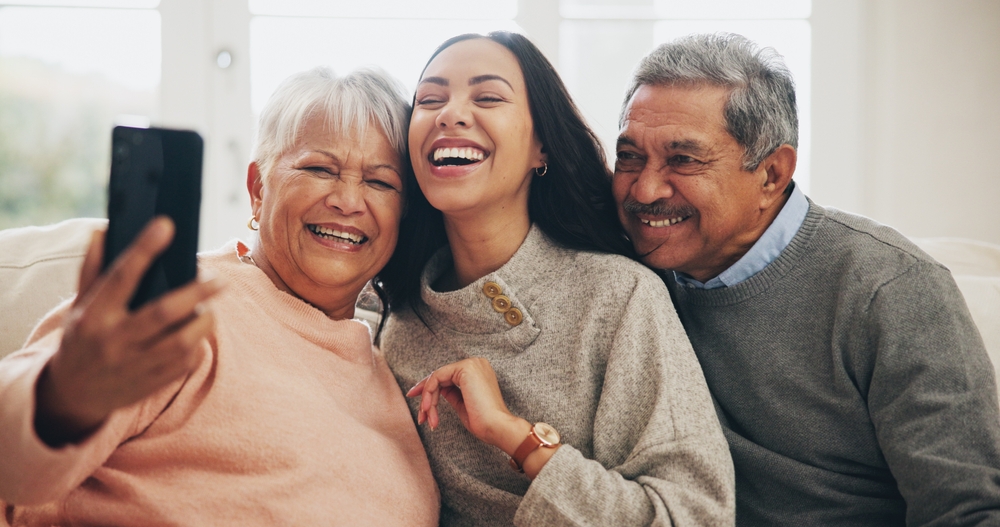In 2025, Americans born in 1960 are reaching age 65, a milestone that for decades…

Helping Seniors Avoid Loneliness
The medically recommended protocols for social distancing and government mandates that restrict large gatherings of Americans to slow the spread of the coronavirus are minimizing our abilities to interact with each other. This isolation holds especially true for those seniors who live alone or in long term health care facilities. Human beings are, by nature, designed for close contact and social interaction. Maintaining human connection, whether it be family or casual acquaintances, can help boost immunity, combat anxiety and stress, and can even lower health risks that are exacerbated by stress like heart attacks and hypertension.
The Association of Health Care Journalists reports that it is critical for older adults’ wellbeing to maintain social ties. Those seniors who experience loneliness and social isolation are more likely to develop dementia, more likely to fall, have an increase in hospital readmissions, and an increase in mortality. Because of the COVID-19 pandemic, health care facilities and hospitals across the country have put a pause on in-person visitation. This separation will protect the most vulnerable populations, such as older adults and those individuals with chronic health conditions.
To help your loved ones in a facility or living on their own during this challenging time of COVID-19 Right at Home, a leader in the in-home senior care industry, has some ideas to stay connected to those you love who are isolated during this outbreak.
- Set up phone dates. Scheduling a regular call at a prescribed time and date brings you closer through conversation and also gives a senior something to look forward to experiencing. Do not over-promise. It is better to have two calls a week that you always attend rather than to miss a promised chat session because you overscheduled your time.
- Write letters to each other. Getting postal mail is fun for all ages, especially when it is a letter, filled with memories of shared times. Include self-addressed stamped envelopes back and forth to encourage continuing the exchange. Lonely seniors will usually re-read these notes and treasure them.
- Set up chatty technology. Whether it’s a tablet, home device, or smartphone, you can use your digital device to use apps like Facebook Messenger, Alexa, FaceTime, Skype, and more to videoconference with your senior. If your senior needs some technical help, most health care workers will be able to help get them started as you will not be permitted to be onsite.
- Virtually watch movies together. If you and your senior have a desktop computer or laptop that uses the Chrome browser, Netflix Party will synchronize video playback and add group chat capability to your chosen show or movie. It’s like having a long-distance movie night or tv watching party.
- Attend online events and activities. Participating online is a big deal when faced with isolation. There are thousands of people online who have similar interests as you. com is a free membership group that has 24 separate categories, like dance, language, and culture, photography, family, tech, health and wellness, music, and more. All of these categories host multiple online events in which your senior can participate.
- Attend virtual religious services. Faith is so important right now, especially for some seniors. If your loved one has a worship service they used to attend, see if they are now providing their services online. Many houses of worship have Facebook pages where a service is a click away. It will lift your senior’s spirits immensely to see and listen to their familiar pastor, rabbi, or priest.
- Make use of the public library online. More than ever, libraries are offering their services for things like movies, e-books, and audiobooks.
- Stay physically active. Log into a virtual exercise class online. Most of the classes are free, and they are found everywhere on YouTube. Just be sure to search for an exercise class that is appropriate for your age and physical abilities. As with any new exercise regime, always consult your doctor first.
- Get outdoors, even for 5 minutes. If at all possible to do safely, step outside on the porch, patio, or balcony and encourage your loved one to do the same. Take in some sunshine and fresh air, take a deep breath and see the bigger picture of life.
Prolonged loneliness can bring about depression and even dementia. However, social distancing does not have to bring about social disconnection. Employ some of these ideas in the world of your senior to protect them from isolation during this pandemic. It is crucial to your loved one’s wellbeing to have direction and routine, hope, and human connection.
We are also using video technology for our meetings so we can continue to help with planning needs of our community. If you have questions about what you read or would like to discuss planning for you or a loved one, please don’t hesitate to reach out. We would be honored to help.
If you have questions or need guidance in your planning or planning for a loved one, please do not hesitate to contact our office by calling us at (321) 729-0087.



